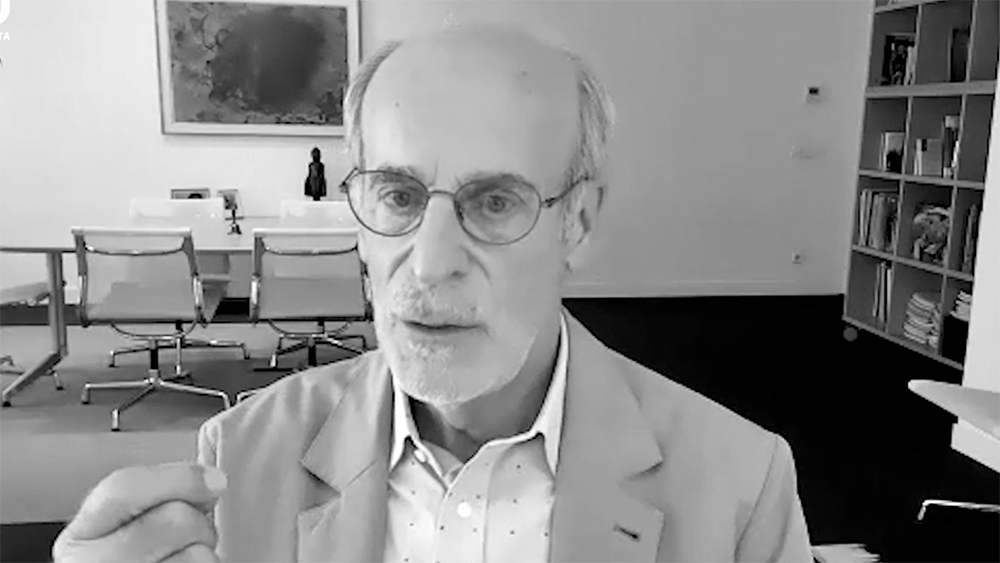
The business world is undergoing significant disruption. Technological advances, new market pressures, supply chain dislocation and now the prospect of recession are all creating a growing uncertainty in the marketplace.
Against this backdrop, it’s ever-harder to predict future trends.
CEOs and business leaders must be continually peering through the fog, ready to change direction rapidly to stop themselves from hitting any icebergs that suddenly rear into view. In such an environment, it’s impossible to count on what was.
So, CEOs and business leaders must be continually peering through the fog, ready to change direction rapidly to stop themselves from hitting any icebergs that suddenly rear into view.
In such an environment, it’s impossible to count on what was. Old rules no longer apply and those that think they do are making a big mistake.
Increasing risk has moved center stage in every market and businesses must adapt to this new reality.
Many companies have already realized they have to reinvent themselves — according to one industry report, nine out of ten businesses now believe their business model will need to change in 2023.
Is the traditional CFO still fit for purpose?
Obviously, any significant transformation of a business model or internal structure is going to need clear leadership not just from the CEO, but others in the C-suite – not least the CFO. But here, a question mark hangs in the air. Is the CFO’s traditional role as financial anchor of the corporate organization, the one who enforces that golden rule of business – don’t run out of cash – still fit for purpose in a world where turbulence is the new normality?
Historically, the CFO’s gaze has been very much fixed on accounting practice, compliance and the safeguarding of assets by squeezing out risk.
So, CFOs tend to have ‘caution’ and ‘take care’ written right through them. This means that when it comes to spending money their natural tendency is just to say ‘no’ … and this is at the best of times. At the approach of a recession, their immediate reaction is to batten down the hatches, hold tight to the purse strings and centralize financial decision-making even more.
If rapid disruptive change is now a constant in many markets in this new environment of radical change, is this still the best strategy? Doesn’t business resilience come from being able to adapt and flex rather than just hunker down and ride out a storm?
But if we have moved into a time where there is no true place of ‘safety’ for any business, then surely CFOs will be doing their organizations no favors by continuing to do what they have always done.
If organizations must become much more adaptable so they can flex in fast-changing markets by embracing greater risk and uncertainty, then it’s paradoxical for those in charge of their finances not to do something similar in parallel.
If that’s the case, then it’s not just businesses that need to undergo reinvention, but also CFOs. And such a change would be no more than a reflection of a changing world. If organizations must become much more adaptable so they can flex in fast-changing markets by embracing greater risk and uncertainty, then it’s paradoxical for those in charge of their finances not to do something similar in parallel.
What does this mean in reality?
A new environment with new challenges
This new world won’t be comfortable for many long-established CFOs who have gone through their careers protecting the cash, since it will require a complete mindset change. And unfortunately, many may lack the skills and abilities to take on this new, more impactful role.
While the need for financial expertise and competence remains, CFOs have to move on from being the sturdy gatekeeper of financial data to a new forward-looking position of power with a fresh remit – encouraging the adaptability that enables an organization to stay relevant to its customer rather than frustrating that by putting a financial straitjacket on a business.
Those who manage to adapt or who are entering into the CFO role afresh will need to be comfortable with an environment in which uncertainty and the degree of risk are growing. This is now a given and is not going away, so CFOs must appreciate that choosing safety as a default is no longer an option if they are to play their part in fostering innovation, promoting digitalization, and identifying new opportunities and revenue streams.
To do this effectively, they will need to be technically savvy because there will be a need to take on more operational responsibilities in areas such as IT and digital transformation.
There will also be a need for CFOs to become more involved in sustainability initiatives that can impact a company’s financial performance and reputation — Environmental, Social and Governance (ESG) is something being prioritized by investors and markets.
Put all this together and the role of the future CFO will begin to blur with that of the COO, as finance becomes a much more strategic component in helping an organization achieve its goals.
A different financial ecosystem
This means that the traditional approach of seeing finance as a separate function operating independently from the rest of the organization may no longer be valid — increasing the agility of a company is not helped if finance sits in a silo focused on its own objectives. However, if decentralized it can become an integral part of day-to-day operations, meaning it’s able to play a full part in responding to changing market conditions.
Finance should be made much more a part of the organization’s overall ecosystem, and not a standalone separate function that sits above everything else.
In other words, finance should be made much more a part of the organization’s overall ecosystem, and not a standalone separate function that sits above everything else.
This kind of decentralization would speed up decision-making – exactly what is needed if you want to become more agile – enabling both middle managers and front-line teams to respond faster because they are not having to explain situations up the chain of command and then wait for top-down decisions. And this works.
An analysis of 3,000 mid-sized manufacturing companies during the Great Recession found those that centralized business-critical decisions on things such as capital expenditure saw revenue declines three times greater than those of companies that took a decentralized view of such decisions.
Companies need to continually innovate if they are to create new solutions and products that keep them aligned with their customers’ needs.
To be able to do that, you can’t keep doing what you’ve always done. Reinventing the role of the CFO is a case in point.
For those who possess the right financial, technical and strategic business skills, there are manifold opportunities ahead. The trick is to realize all things must change – and that the change is an exciting one, full of promise and potential, for those ready to embrace it.












